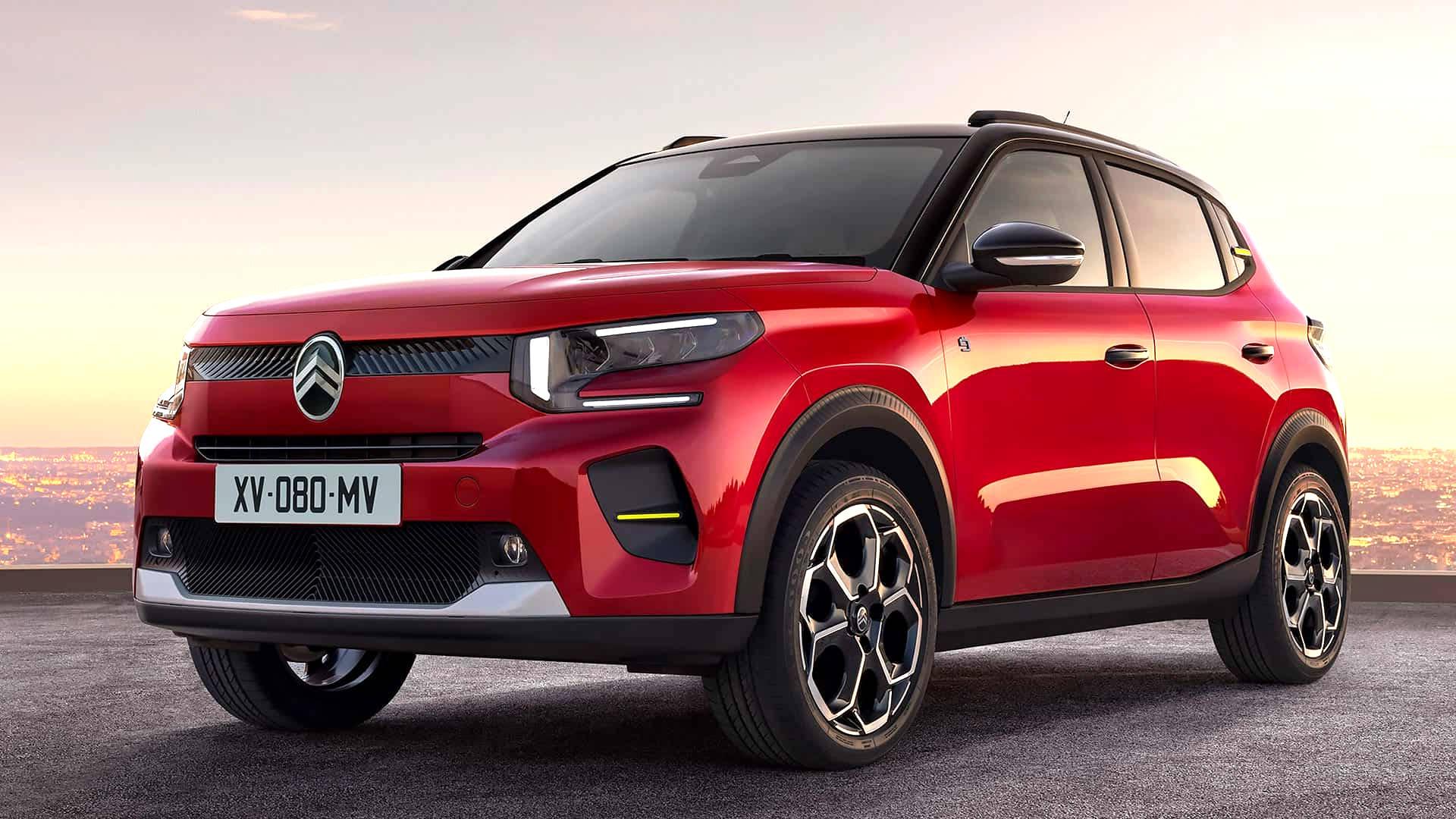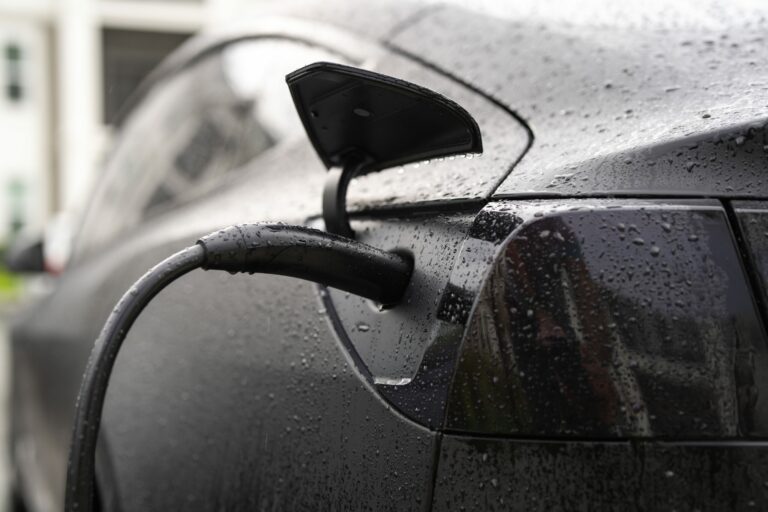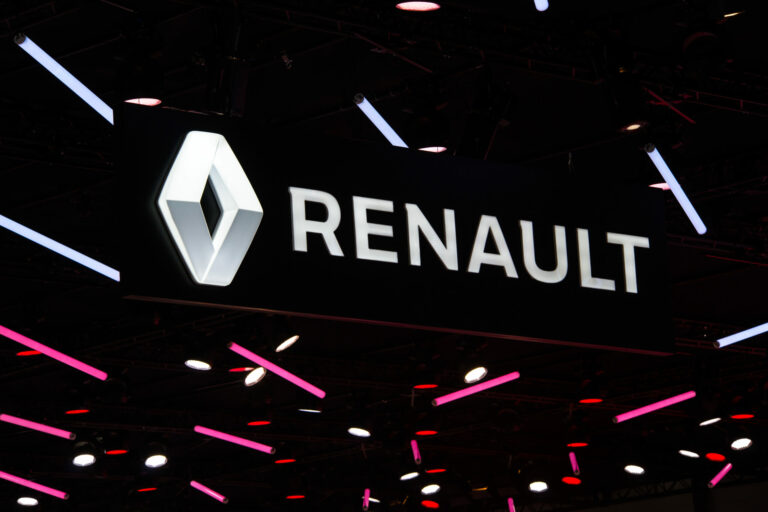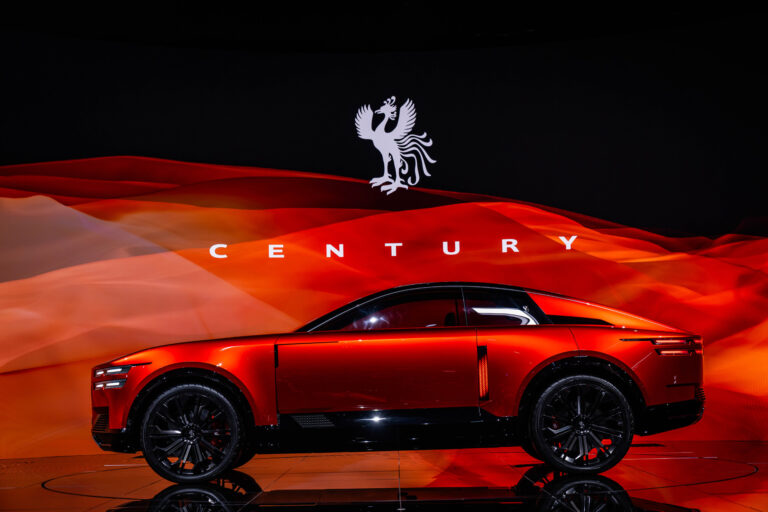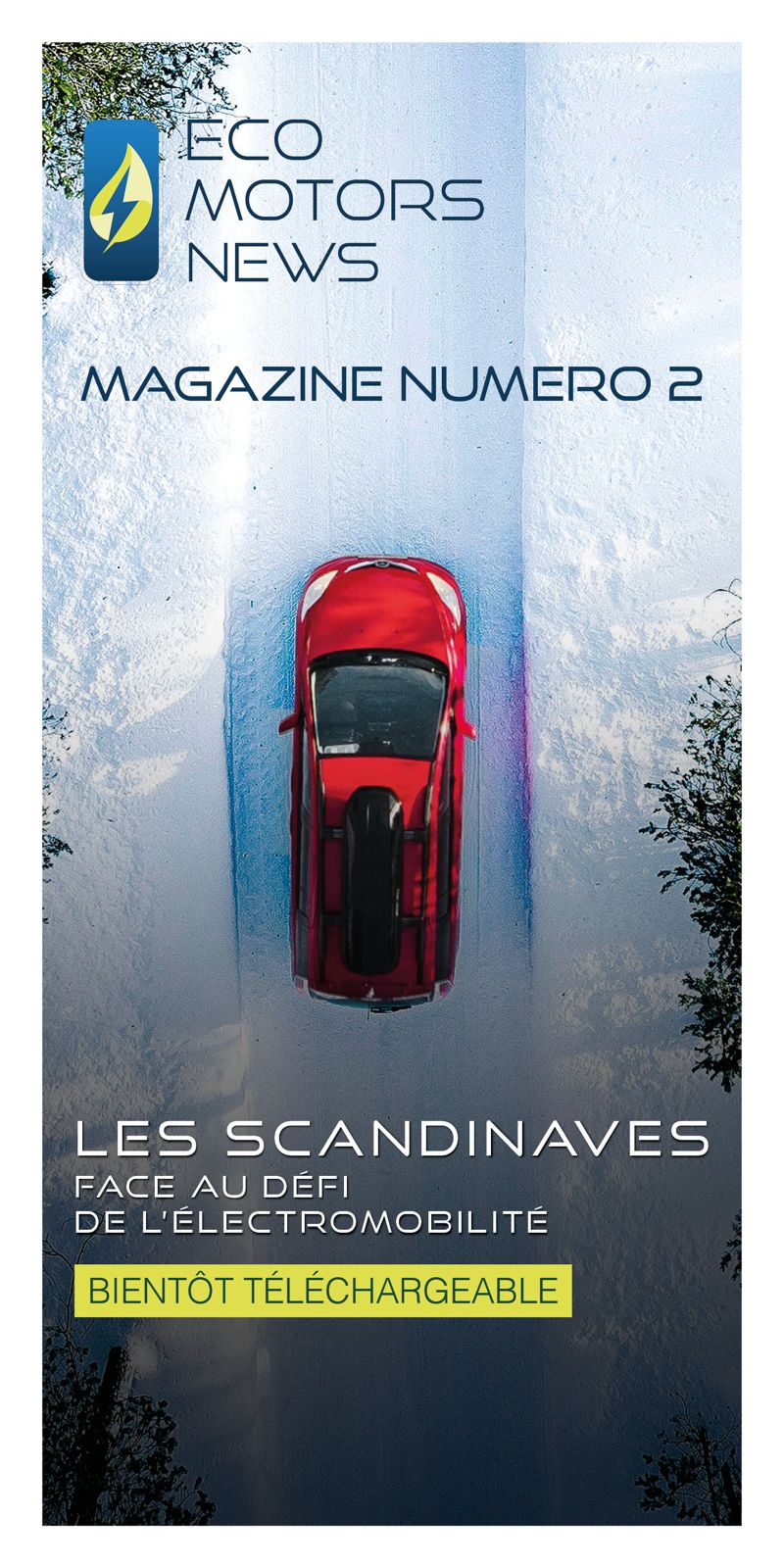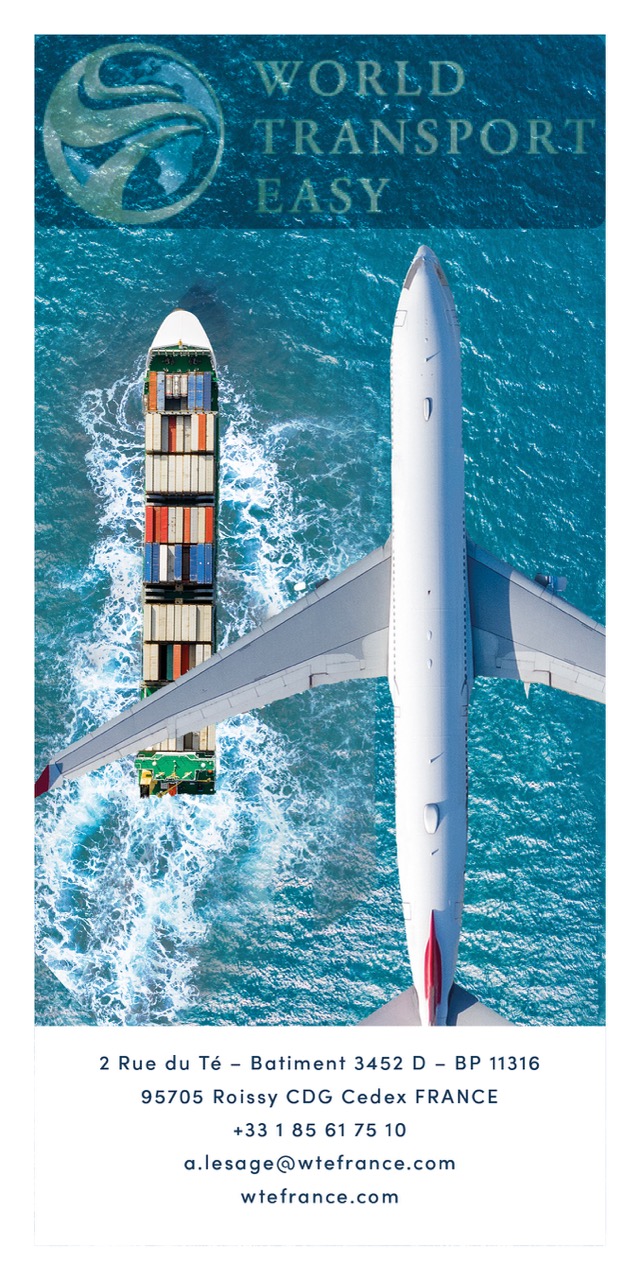Electric vehicles (EVs) are playing an increasingly important role in the French automotive landscape. In 2024, according to government figures, 100% electric cars will account for 16.8% of sales, confirming a stabilisation after strong growth between 2020 and 2023. The market is marking a shift in manufacturers’ positions, with popular segments evolving and a transition towards electrification.
After strong growth, sales of electric vehicles will fall by 2.7%, from 303,900 units in 2023 to 295,600 in 2024. Their market share remains stable at 16.8%, compared with 16.7% the previous year. Sales of plug-in hybrids followed the same trend, with 147,100 registrations, a fall of 9.6%. At the same time, combustion engines continued to decline. Diesel dropped to 7.2% of sales, while petrol fell by 37%, now accounting for 30.2% of the market. Diesel hybrids are becoming marginal, accounting for just 0.8% of sales (down from 1.2%). Conversely, the non-rechargeable petrol hybrid is growing strongly, becoming the best-selling engine in France.
Alternative energies (natural gas/LPG) are stagnating at 3.2% of the market. This shows a decline in traditional combustion engines, stagnation in new energies, and an increase in conventional hybrids as a transitional solution.
The best-selling electric cars in France in 2024: a reshaping of the market
The stabilisation after several years of sustained growth marks a repositioning of the dominant brands and a renewal of the popular models.
Tesla on the wane, Renault on the rise
For a long time the undisputed leader, Tesla is seeing its sales decline. The Tesla Model Y, although still in the lead with 28,576 units sold in 2024, is down 23% on 2023. Its other model, the Tesla Model 3, is down by 52.7%. This drop is partly due to the arrival of French competitors that are more accessible and better suited to consumer expectations.
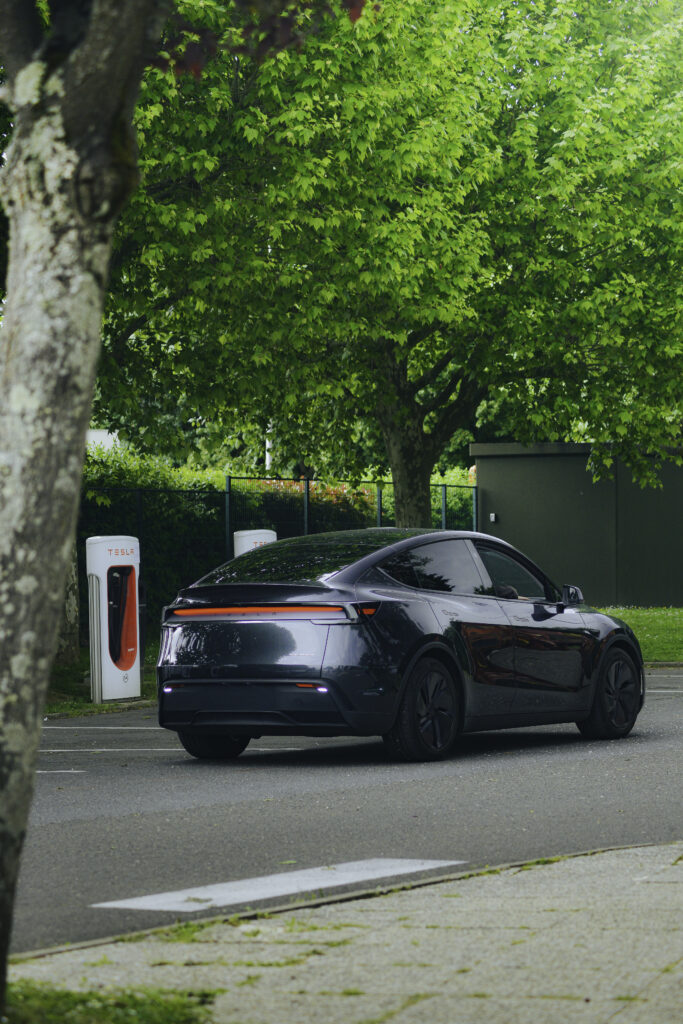
Conversely, Renault is taking advantage of this momentum to become the market leader for electric vehicles in France. The Peugeot e-208 confirmed its success, with 23,602 units sold. The Renault Megane E-Tech held up well, with a total of 16,800 registrations. The manufacturer has attracted interest with a number of eagerly awaited new models. The recently launched Renault 5 E-Tech recorded 9,973 registrations, while the Renault Scénic E-Tech made its mark with 8,953 units sold in its first year.
Electric SUVs are also enjoying great success. The Peugeot e-2008 is up 95.1% with 8,944 sales, while the BMW iX1 is up 135.9% with 8,940 units sold.
On the other hand, some iconic models are experiencing a decline. This is the case of the Fiat 500e, which fell by 33% to 16,153 units sold, losing ground to more recent alternatives.
A market dominated by Renault, Tesla and Peugeot
Renault is now the leading manufacturer of electric vehicles in France, with a market share of 16.9%, up 2.3 points. Tesla is down to 15.8%, while Peugeot is up 1.1 points to 14.7%. Volkswagen and BMW continue to battle for market share, with 9.2% and 7.1% of registrations respectively.
The year 2024 marks a turning point for the electric vehicle market in France, with a transition to a more diversified market. Tesla is losing its influence to French manufacturers who have adapted their range to consumer needs. Renault is emerging as the leader, with an attractive range and a well-established network.
Sales trends also point to a diversification of consumer choices. As the market enters a phase of consolidation, the battle between manufacturers is set to intensify in the years ahead, with the arrival of new innovations and ever more competitive models.
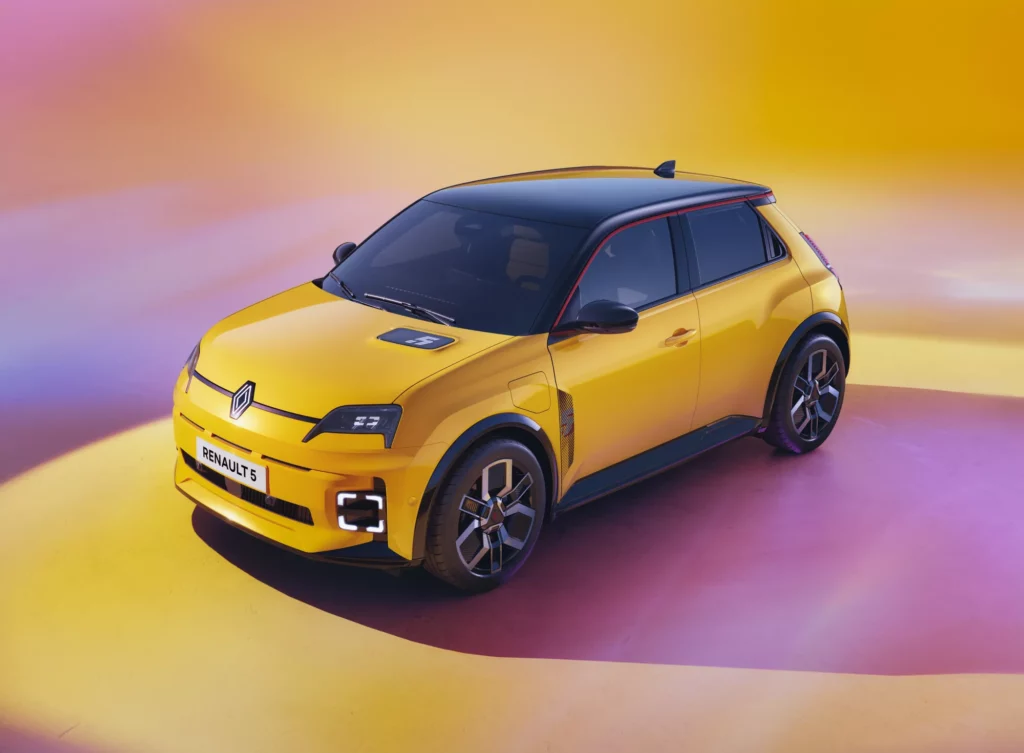
Electric cars on the road
By the end of 2024, France had nearly two million electric and plug-in hybrid vehicles on the road, according to the national association for the development of electric mobility, Avere-France, of which 1.3 million were 100% electric.
France is Europe’s third-largest market for electric vehicles, behind the UK, with 382,000 registrations in 2024, and Germany, with 381,000. Electric vehicles account for around 15% of European sales, compared with 16.8% in France.
Price and profitability of electric vehicles
The average price of a new electric vehicle in the first half of 2024 is €43,000. This is down on 2022, when it was €45,000, but up slightly on 2023, when it was €42,000.
However, some affordable models can reduce the initial investment. The Dacia Spring is available from €16,900, while the Leapmotor T03 has an entry price of €17,900. The Citroën ë-C3 starts at €23,000, while the Renault Twingo E-Tech starts at around €22,900.
In comparison, an average petrol vehicle will cost around €27,000 in 2024, compared with over €28,000 a year earlier. The price of diesel vehicles, meanwhile, has risen, reaching €40,000 in 2024, compared with €38,000 in 2023, according to data from AAAData.
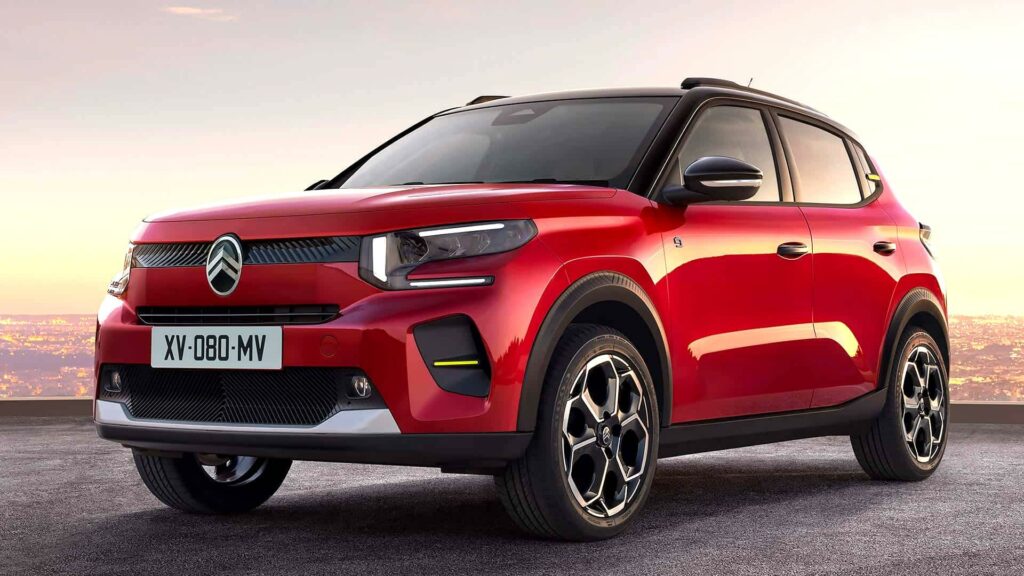
Despite the gradual narrowing of the gap, electric vehicles are still between 30% and 40% more expensive to buy than their internal combustion equivalents.
In 2019, France had around 30 different electric vehicle models on the market, according to data from Avere-France and the CCFA (Comité des Constructeurs Français d’Automobiles). By 2024, this figure had exploded to more than 120 models available on the French market, according to consolidated data from Avere-France and the Plateforme Automobile (PFA).
So, despite a still high purchase price, the range is diversifying, contributing to accelerated adoption.
Autonomy and diversity
The range of electric vehicles continues to improve, although disparities remain. In 2024, entry-level models such as the Dacia Spring and the Fiat 500e offer a range of 220 to 320 kilometres, while top-of-the-range models such as the Tesla Model Y can exceed 500 kilometres on a single charge.
The number of models available has also risen sharply, contributing to a more rapid uptake of electric vehicles.
The year 2024 marks a transition for the electric vehicle market in France, with sales stabilising after a period of strong growth. The market is diversifying, with more affordable models, improved range and strong demand for electric SUVs. While the purchase price remains a major obstacle, the market dynamic remains geared towards increasing electrification of the French car fleet.

